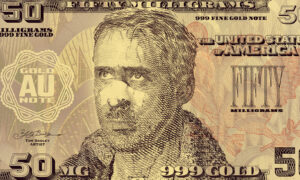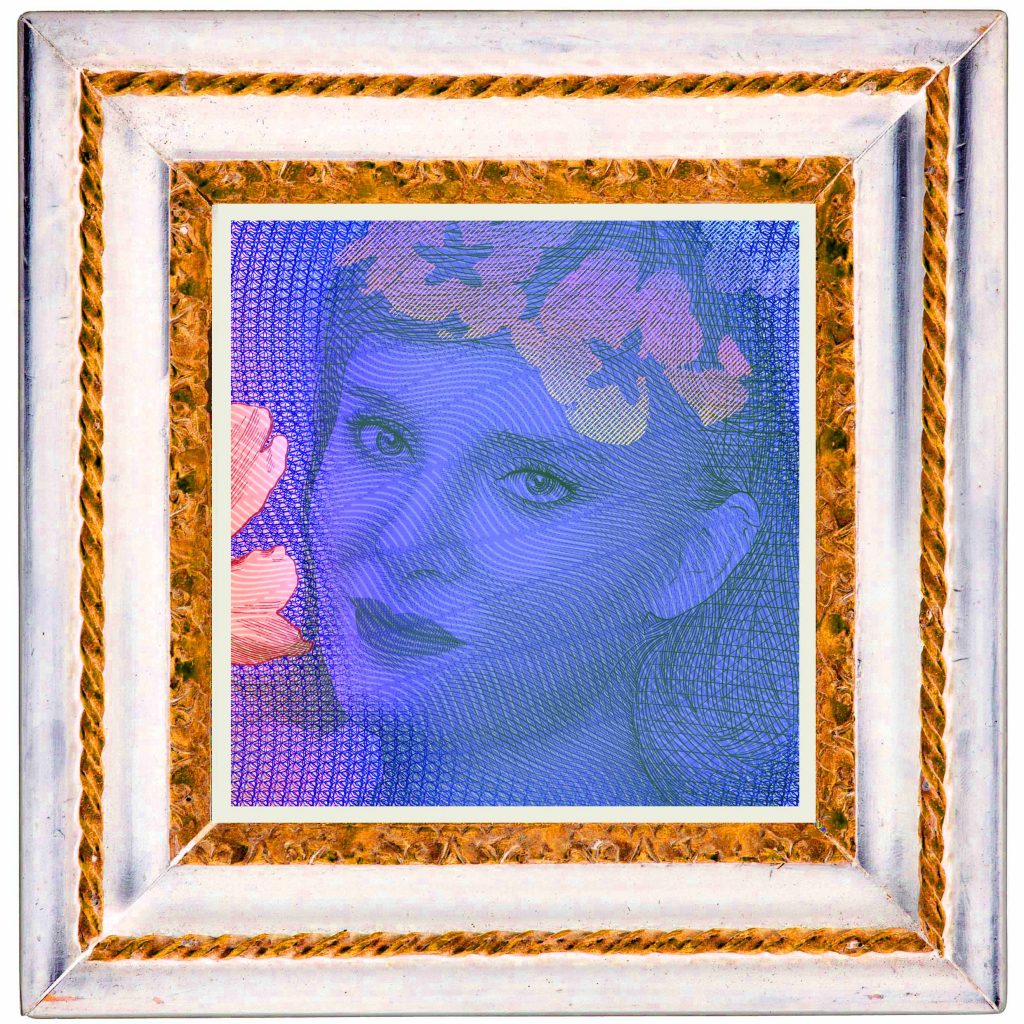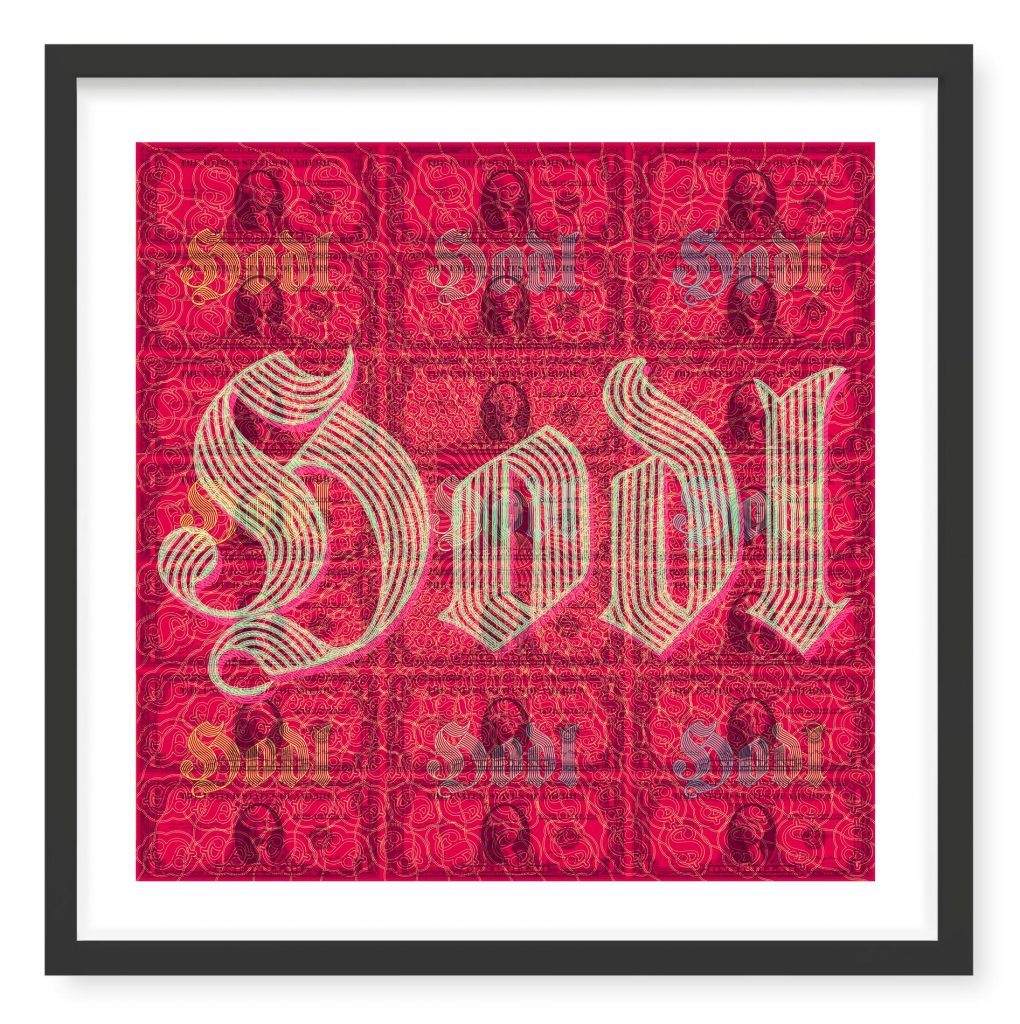Its been called The War On Cash. For the purposes of this article, Im going to assume youre already aware, to some degree, of the push to discourage cash transactions globally. This push is coming from the-powers-that-be, whove decided that cash is an obstacle in their plans. This trend is interesting, for it holds financial, philosophical and metaphysical dimensions. By that I mean, if none of us chose this money system, then its been chosen for us. So, transcending this current system represents an unprecedented level of self-determination in the hands of humanity. God forbid__if we actually had a money system that was of our CHOOSING, our freedom would be limited only by our imaginations
SEEING THE WHOLE CHESSBOARD
The supreme art of war is to subdue any enemy without fighting__Sun Tzu
The good news is that this sudden assault on cash is indicative of weakness and desperation. You have to see the whole chessboard. Rather than begin the propaganda in the 1970s, have a slow roll-out in the 1980s, so that the cashless society could be introduced in the 1990s, TPTB have chosen to introduce the cashless society to coincide with a collapse in the monetary and political system. The concept was that if enough chaos could be created, then the world would simply accept a cashless system out desperation. In other words, they couldve taken the slow fade, low impact route, but theyve chosen the high risk, high impact option. Except, theyve badly misjudged it.
So lets redefine The War on Cash. Dont give self-proclaimed authorities the credit__humanity is not a puppy encircled by an electric fence, and the-powers-that-be are not so powerful. What is in fact happening is that the collapse in the financial system is already a done deal, so TPTB must press on with their cash ban, whether they want to or not__in other words, theyre boxed in. This is good news, because it implies defeat.
At the same time, we have the better news: take heart from the fact that there is a great momentum behind the scenes to change the current financial system, to an asset-backed structure. Currencies will be revalued/devalued based on the resources of each nation, and the wealth of each nation will be its resources and productive capacity. This was the original, true definition of Capitalism.
So putting the War on Cash in context, we see that its more like an attempt to manage and control the transition to a cashless, centralized, debt-based system, when in fact theres momentum in a completely different direction, towards a fairer structure thats based on something more than confidence.
Ultimately, this will be very positive. By 2030 well probably have a formalized and digitized barter/commodity currency system, with multi-tiered systems that interact at various levels of formality. For example, goat herders in Western China may transact in Bitcoin at the local market, which can be converted into deliverable silver bars, or other units of account that can be exchanged for upkeep of a 3D barn printer, operated by programmers in Ukraine, whose digital currency is tied to the price of wheat. Meanwhile, governments may transact in gold, or vague objects with no determined numerical value, such as technology. Technological progress will also re-work the value of certain commodities. Graphene, bismuth crystals and silver all have interesting properties, but when combined in a certain way, the discovery may be so prized as to make these commodities priceless. Therell be investment and arbitrage opportunities that will make some wealthy__not in terms of having many of units of currency, but in terms of owning something with highly prized use value.
BACK TO NOW
Its nice to dream of what the world will look like in 2030, but we have to be real. Chaos is necessary for change. Chaos is a certainty. TPTB are desperate and will introduce controls and bans on cash in an attempt to manage and consolidate power. What can everyone do RIGHT NOW to prepare for the abundance that awaits in the future, in the midst of chaos? Im not qualified to advise anyone on this
but I can tell you what Im doing:
1. I CHANGED MY MINDSET
I stopped thinking of wealth in terms of units of currency. The currency you think is yours, was never yours. It was created from debt, and is owed back to a bank. Units of currency in a bank account are loans to you, not your deposit. So
units of currency are not__and were never__an appropriate measurement of abundance.
2. IM MINDFUL OF UTILITY
I look at what I have, and plan on having, and judge everything based on its current and future utility. Chocolate from a girlfriend is nice, but the girl who buys me parachute cord and duct tape wins my heart. Ill take water filtration over consumer electronics any day. If I buy a table, I consider the cost to be the difference between its buy price, and the price Ill be able to sell it for. Stainless steel and wooden spoons for cooking, Silverware for eating__no point in buying silver ingots when you can eat with your investment.
3. IM MINDFUL OF ACCESS AND PROXIMITY
Most of the things I own that have value, or will have value, are within arms reach, or in a safe place that I have exclusive access to. There is no small print or barrier to access. Its there if it needs to be sold, or packed up and carried. I pay particular attention to conflicts of interest, and anything that could restrict instant access to money raises a red flag__its highly likely that the person whos entrusted with your money considers it to be their money in your absence. It comes back to a change in mindset again__we concentrate way too much on the quantitative nature of money, when abundance is often dictated by the qualitative aspects of wealth__aspects such as utility, access and proximity.
4. I THINK ABOUT WHERE I AM, AND WHERE I WANT TO BE
I travel a lot, but one day I wont. There will be a point where Ill want to settle in one place. Will that place be cash-friendly? Will that country place worth on the things I have? For example, Im a big fan of silver bullion. Silver bullion is readily bought and sold in the US by the kilo. But in Ecuador, that amount of Silver cannot be absorbed__most people simply dont have the spare cash laying around to pay for kilos of silver. So even though bullion might be qualitatively prized in Ecuador, the Dollar is more USEFUL__just one example
At the moment, Im mostly in the EU. By the time you read this, the EU may have completely outlawed cash. By which time, it would be too late to cross the border to take my cash out. The exits would be closed, and Id be stuck with useless paper. This is, of course, if I was holding pieces of paper with Euro written on them. The same cash ban may not apply to Dollars. So I could remain in the EU and be somewhat protected, if Dollars were to be freely exchanged. Its worth noting that the USD is the only currency to my knowledge that hasnt been suddenly demonetized. Whatever your situation, think where youre going to be, and what THING(S) will be particularly valued in that part of the world__it might not be what is valued today.
5. I THINK ABOUT MOBILITY
Closely related to (4), I think about the mobility of wealth and physical assets. I have a thing about volume__I never want the total volume of stuff I own to be more than 2 cubic meters. 2 cubic meters can be carted around. 2 cubic meters can be single-handedly loaded in the back of a long wheel base in under 30 minutes. 2 cubic meters can unpack and take up much more room if needed. I like things that fold, and Im always interested in packing utility and value into the smallest space/load possible. So if I spend, I tend to sell too. Be mindful of fixed assets and movable assets, and the risks associated with both in relation to your life situation. Fixed assets, such as property, are subject to the jurisdiction of tax authorities. You have to trust that they wont raise property taxes to the point that it disincentivizes home ownership. Gold up to a point is a movable asset__but will be detected by airport scanners.
6. I THINK ABOUT PRESENTATION
I once worked as a banknote specialist in an auction house. There was a client who was obsessed with cleanliness. He never handled worn notes. Instead, he got brand new notes from the BOE, and glued one edge together to make a post-it notebook of banknotes. Because people werent used to seeing banknotes torn off in a pad like that, waiters would refuse them__the way they were presented made them look unreal
A wad of high-denomination notes looks nice. You can throw them up in the air and make it rain. But I wouldnt stow them in bundles in an alcove. Instead, I have cash and other assets spread around in various places, hidden in full view. I only have small bills, as larger values risk being demonetized. For the same reason, I dont like bars of gold and silver, because they look valuable. If I did have a 10 kilo bar of silver, I would paint it red and keep it near a fire extinguisher.
7. I SPEND
Pretty simple__if cash is the object of contention, make sure you dont have much of it! The cash I have is enough to cover 6 months expenses. The rest of my digital currency units are in other forms__either in investment accounts, cryptocurrencies or in some hard asset other than currency. I keep a minimal amount in bank accounts. Theres also a Mastercard that allows you to keep digital money in the form of gold, and spend it as if it were currency. Of course, everyone is in a different situation. I love spending, so this isnt hard for me.
8. I EMBRACE ANY FORM OF MONEY
I try to diversify between physical cash, other physical assets, and money in various forms of digital units__spread across as many forms as possible. I oppose the idea of cashless society as a means of centralized control__but Im not against cashless if the intent is benevolent. I dont see a malevolent intent in Bitcoin__even though its completely digital, Bitcoin is decentralized and transparent. Yes the price can be pushed around, but thats because its a small market. Compared to other financial markets, Bitcoin is the least manipulated. Im also open to receive payment for work in forms other than money__barter items or hospitality.
9. I MAKE FRIENDS (REAL FRIENDS, NOT FACEBOOK!)
Survival is a control structure, used to keep humanity in bondage. The money system is the instrument of survival, for as long we remain in survival-mode, well never make progress. Nothing IN survival can MOVE PAST survival__its self perpetuating. Part of this is because money is alienating. There is a promise that a unit of account is the equalizer. But if someone is only accountable through money, then weve forfeited the interpersonal skills to independently determine someones accountability, and the incentive to act in a way that demonstrates our integrity. The solution is to put emphasis on building relationships and finding ways to be mutually beneficial. This could be as simple as being very vocal as to what you need; others will seek out ways to fulfill your need, and by accepting and showing gratitude for their help, you add value to them. Of course, it works the other way round. At present, most people dont think like this. Everyone is on their own hamster wheel; their energy is withheld. They live in desperation, their eyes are dull, theyve been sold the idea that your bank account determines your future, that work will set you free
when the one thing you really want may be a product of collaboration with someone you passed every day but never made eye contact with__relationships. People who do not have the same social conditioning have transcended the burden of survival, freeing up brain capacity to free associate, play, connect directly; their energy is unstifled, theyre present, their eyes are bright. These are the people who inspire others with their humour and lightness__those people will never have to worry about survival, because theyll have an army of friends prepared to meet their needs, and who get joy from doing so. Everyone has so much to offer each other__nobody has to feel poor, because just by being here you have the right and ability to add value. Networking, rapidly building rapport, determining commonalities and how we can add value to each other, are the preeminent habits of the new paradigm__a paradigm that transcends the present financial system. The real survivors of the collapsing financial system will be those who are socially savvy, generous, outgoing, humorous, strong, non-judgemental, transparent, free-flowing, authentic. Its the person who offers value, not the money__so being good with people is the best investment you can make for transitioning between two monetary paradigms. I reject self-imposed loneliness and judge my wealth by my willingness to connect, share experience, and create social circles.
10. I STOP TO SMELL THE ROSES
Leading on from (9), Im interested ways of measuring quality of life that does not include money as a factor. For example, one definition of poverty is not being able to access nature. If you live in the city, its imperative that you make a point of regularly going into lush environments. When youre there, in a forest, really take note of everything, and how you feel. Youll start to feel a hidden order or harmony. Notice how it feels to lean on a tree or put your hand through the earth. Nature is an unmediated space that exists in harmony. Nature exists without a money system. Nature is ongoing, and simultaneously matches any human need. By being IN nature, you align yourself with something that goes beyond money, and the flaws in our decrepit cultures become intuitively obvious
Another definition of poverty I have is an over-reliance on convenience__particularly around food. Last year, as an experiment, I spent three months of just living off prepared food bought in supermarkets and restaurants. I felt un-hinged. Oh pity! Some people are STARVING and Tom had to rely on the supermarket!
but I dont distinguish between someone begging for food, and someone whos reliant on pre-prepared meals or fast food. They exist on the same scale of survival. Abundance is the ritual of cooking, to do what humans do best: to produce, to make something from nothing
Another definition of poverty is the inability to be QUIET. Most people are consumed by a never-ending, highly repetitive, self-involved inner dialogue that is disorientating and extremely hypnotic. Money, technology and culture has done this, and most people dont notice the prison of their own thought processes, so they perpetuate it. This hypnotic stream of thought creates a false construct of self and reality. It takes you everywhere but the present moment. By having NO thoughts, you break the false prison of thought: thats reality. This is the foundation of self esteem, self discipline, and self determination__in other words, everything that money says you dont need to bother with: if you can buy anything you want, why bother with introspection? But if the idea of money is contentious, if its going to be banned, if its at risk of being made worthless, then you have an opportunity for introspection. You have an opportunity to retrace your steps and ask, what could life be if I already had everything I needed and survival wasnt an issue? And just by asking that question NOW, you begin to build a reserve of intention. When the system collapses, instead of wishing things would return to normal, youll see opportunities in the chaos that nobody else can see__perhaps not opportunities to make money, but opportunities that provide for abundance nonetheless. For this reason, its imperative that we have one foot out of the chaos, ahead of time
In summary, I get into nature, I get quiet, and Im open to unseen resources.












